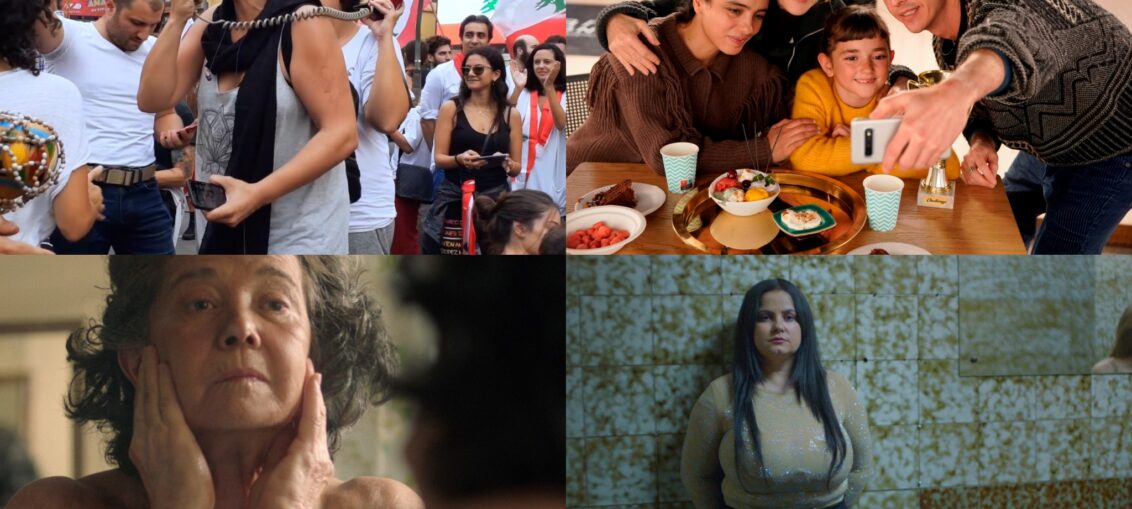
 The critical gaze of Maria Vittoria from the Zoo Palast
The critical gaze of Maria Vittoria from the Zoo Palast
(from Berlin Luigi Noera with the kind collaboration of Maria Vittoria Battaglia and Vittorio De Agrò of the editorial staff Ground floor– The photos are published courtesy of the #BERLINALE)
From the #Panorama section the look at the World in flames
 #Afterwar di Birgitte Stærmose
#Afterwar di Birgitte Stærmose
Synopsis: Children transform into adults before our eyes. Yet they remain in limbo, haunted by memories of the war in Kosovo. Combining raw realism and stage performance, Afterwar is a meditation on the long-term repercussions of war.
#Afterwar di Birgitte Stærmose | with Gëzim Kelmendi, Jewel Abdullah, Hope Azemi, Faithful Hyseni, Luan Jaha – Denmark/ Kosovo / Sweden / Finland 2024 Panorama documents | | WP | DOC
Birgitte Stærmose proposes a documentary work which, through the testimonies and autobiographical stories of the protagonists, deals in detail with the Kosovo war or, more specifically, the post-war period.
The film, a project by 15 years, follows the time span of the protagonists' lives: the past, in which old footage of their children tells of the war immediately after the end of the latter, finding himself having to work selling cigarettes, peanuts, telephone cards etc., in the streets of Pristina to be able to bring home some money; The present, where we witness their current lives; and finally the future, or rather the intentions and hopes of the protagonists towards a future that can finally give them back the serenity of which they were deprived too soon.
However, there is no room for hope, because the film is not a fairy tale but a realistic portrait of what war does to people. After the war, men are quieter, says one of the characters, meaning as much violence, fear, poverty annihilates souls, destroying any desire to live and hope and leaving room only for the survival instinct.
The protagonists of the film, indeed, they survive, they never overcome the traumas of war and post-war, period of fake peace that brings with it the weight of rubble and destruction.
The camera lingers on the faces of the protagonists, on their dull eyes and on the mouths that never hint at a smile, looks at them, he stares at them for endless minutes in an attempt to give a voice and a face to all those kids who remained nobodys after the war, anonymous faces in a collapsing world.
“War settles in people. Like a plague.
You think the war is over.
I am just waiting for this afterwar to end”
 #DiariesFromLebanon at Myriam El Hajj
#DiariesFromLebanon at Myriam El Hajj
Synopsis: Lebanon, 2018. War, politics or revolution: these are the choices faced by Georges, Joumana and Perla Joe. Three destinies and a common desire to rebuild a troubled country. How is it possible to continue dreaming when everything around you is falling apart?
#DiariesFromLebanon at Myriam El Hajj | with Joumana Haddad, Perla Joe Maalouli, Georges Moufarrej – Lebanon / France / Qatar / Saudi Arabia 2024 Panorama documents | WP | DOC
In this documentary the Lebanese director El Hajj observes the last five years of Lebanon through its political events. It starts from 2018, when the candidates of the Kulna watani list, including the poet Joumana Haddad, they were elected only to have their vote annulled. Vote the following day. He focuses on 2019, year of the great street revolt of young Lebanese people, whose voices are collected and represented by the young and combative Perla. The fire of anger and revolt merges, a few scenes later, with the fumes of the tragic explosion at the port of Beirut 2020. The director talks to us about corruption, of continuous wars on all fronts, of poverty, of the lack of work and prospects. Talk about Lebanon and all its contradictions but, mostly, It's about a generational conflict.
Interviews with Civil War veterans, who do not recognize the value in the new movement of youth protests, it is the mirror of a country that still lives from the past, of wars that began in a time now distant, of a corruption that always has the same face.
Young people protest because they want to dream of the future, not just remember the past, because civil wars are no longer their story. Young people who feel like they are in a prison “with three walls”, between Syria, Turkey and Israel, who are surrounded by bombs and rockets and are imprisoned in a country that does not see them, he doesn't feel them and doesn't care about them. But it's a different world, it is a world that craves openness, that can no longer tell the same story.
The director talks about fears and hopes, those hopes that falter in the continuous crises that Lebanon experiences but which are the fuel and strength to continue fighting.
 #MyNewFriends di André Téchiné
#MyNewFriends di André Téchiné
Synopsis: The daily and solitary life of police officer Lucie is turned upside down by the arrival of a young couple and their little girl who move into the house next door. Becoming attached to them, he discovers that his father is an anti-police activist.
The people next door (#MyNewFriends) di André Téchiné | con Isabelle Huppert, Hafsia Herzi, Nahuel Pérez Biscayart – France 2024 | WP
#MyNewFriends, André Téchiné's last work tells of Lucie (Isabelle Huppert), of his work, of the doubts and uneasiness that grows inside her, of his affections and, mostly, of his new friends. Torn by mourning for the loss of her partner, partners in life and work, Lucie sees anger growing inside her, anger that tastes like indifference. A growing apathy characterizes his relationships, because he sees everyone guilty of death - or of indifferent silence – of the partner.
However, an encounter with a sunny and dynamic little girl begins to change everything. The new neighbors manage to break Lucie's hardened heart, the house begins to relive the smiles of the past, the keys of his companion's piano make their sound again.
Therefore, the time of doubts arises, because the new neighbor has problems with the law, hides weapons and participates in violent protests, and Lucie will then have to deal with a drastic choice.
But he can't choose work again, the job that led to the death of his beloved, and this will lead to a series of events that will drastically change his life.
A film with delicate and serious tones, interspersed with scenes with a strong documentary feel, which tells a very current cross-section of our society, breaking away from the flat dynamics of reportage and giving each character their depth.
 #MemorieOfABurningBody by Antonella Sudasassi Furniss
#MemorieOfABurningBody by Antonella Sudasassi Furniss
Synopsis: Repression and taboos shaped the image of femininity for Ana (68), Patricia (69) in Mayela (71). Their stories combine poetically to form a kaleidoscope of memories, secrets and desires embodied in the body of another woman.
Memories of a body that burns (#MemorieOfABurningBody) by Antonella Sudasassi Furniss | with Sol Carballo, Paulina Bernini, Juliana Filloy – Costa Rica / Spain 2024 | WP
A house full of books, trinkets and photos, an elderly woman, widow, and a story to tell. Three protagonists of a story that intertwines every element, where each photo triggers a memory, every memory lives on the woman's body and every sigh of the body echoes in a sometimes cared for house, sometimes mistreated. The story traces the protagonist's autobiographical story from early childhood.
Talk about your relationship with your mother, a severe woman who didn't offer smiles, with friends, the teachers. Laughter at school with friends, the escapes to meet the first boyfriend, the wait for love, the taboos of an overly bigoted education.
It retraces the traumas of adolescence, he rereads them with the wisdom of age and experience, trying to silence the voices that raised her by repeating them – and convincing her – of being guilty.
Remember the wedding, unhappy since the day of yes. Domestic violence, frustration, loneliness. The film relies heavily on contrast: warm colors dominate the old lady's house, the cold and dark ones are the flashbacks of the past; the strong voice of a determined woman, proud tells of a scared girl, dominated by her husband's violence, of the parents' lack of affection and severity, of the loneliness of a mother closed at home; the awareness of a woman contrasted with the confusion of a girl without an identity, first daughter, sister, then wife and finally mother.
In the end the two stories come together, the girl understands who she is, finds herself and the courage to free herself from the chains and dictates of a rigid and unfair education that annihilates people. The legacies of a wrong time turn yellow with the pages of the albums and the memories of a time gone by, testimony of a biography that we carry with us, but which no longer defines the identity of a woman who becomes free.
Maria Vittoria Battaglia
